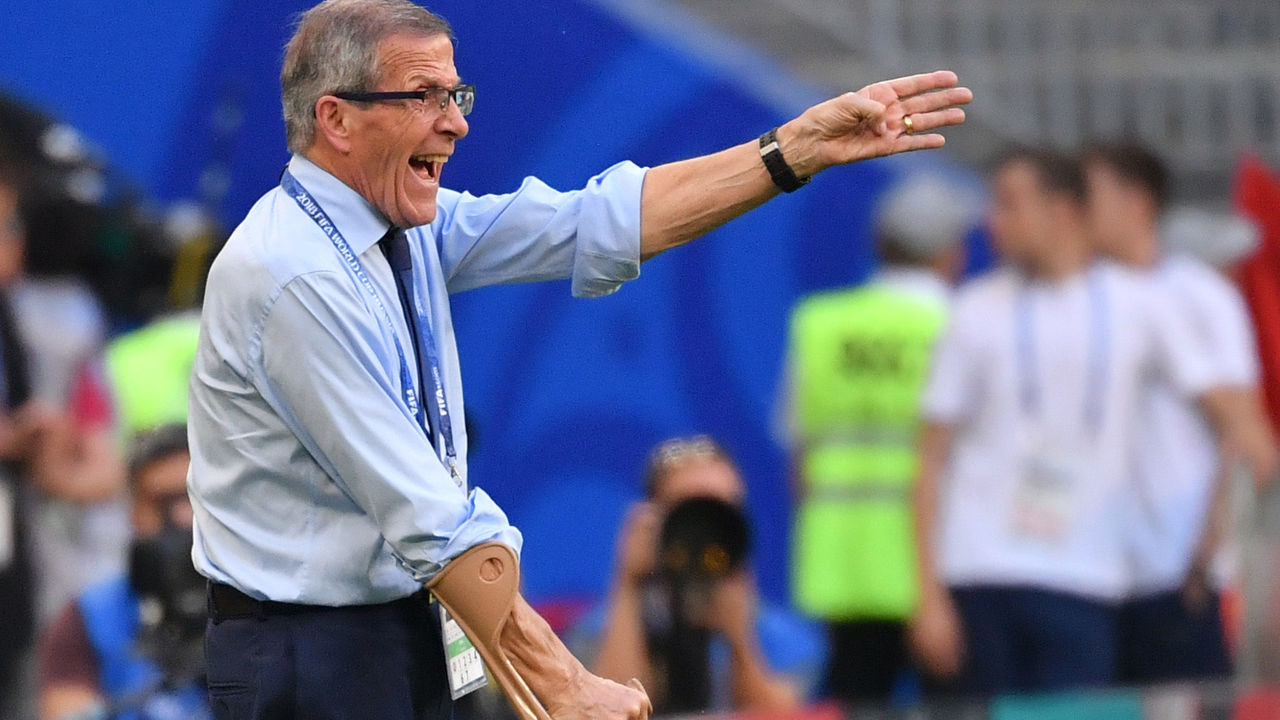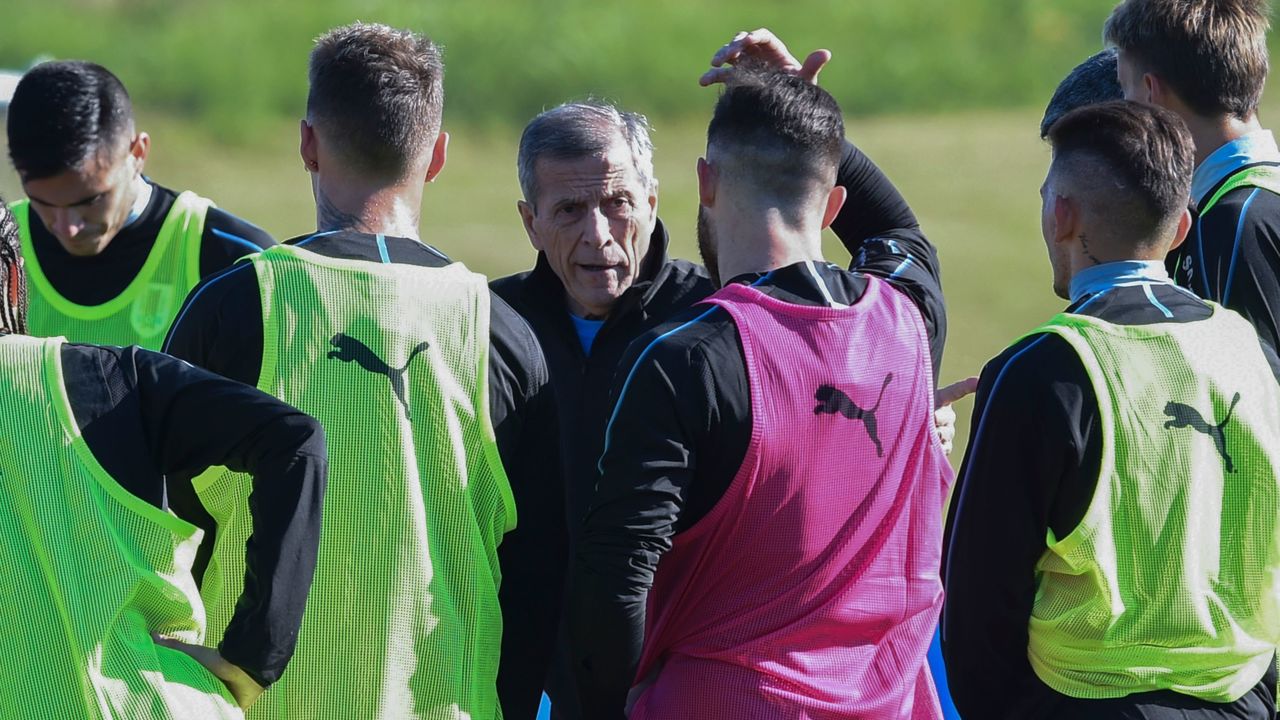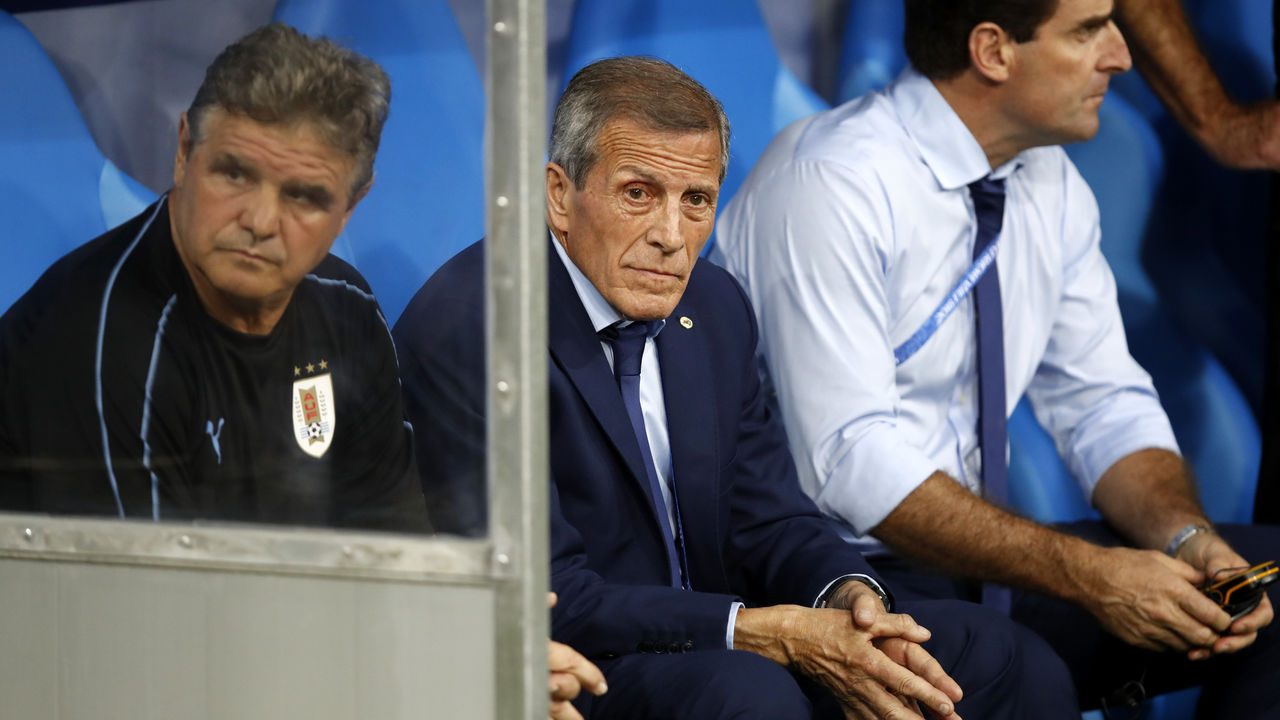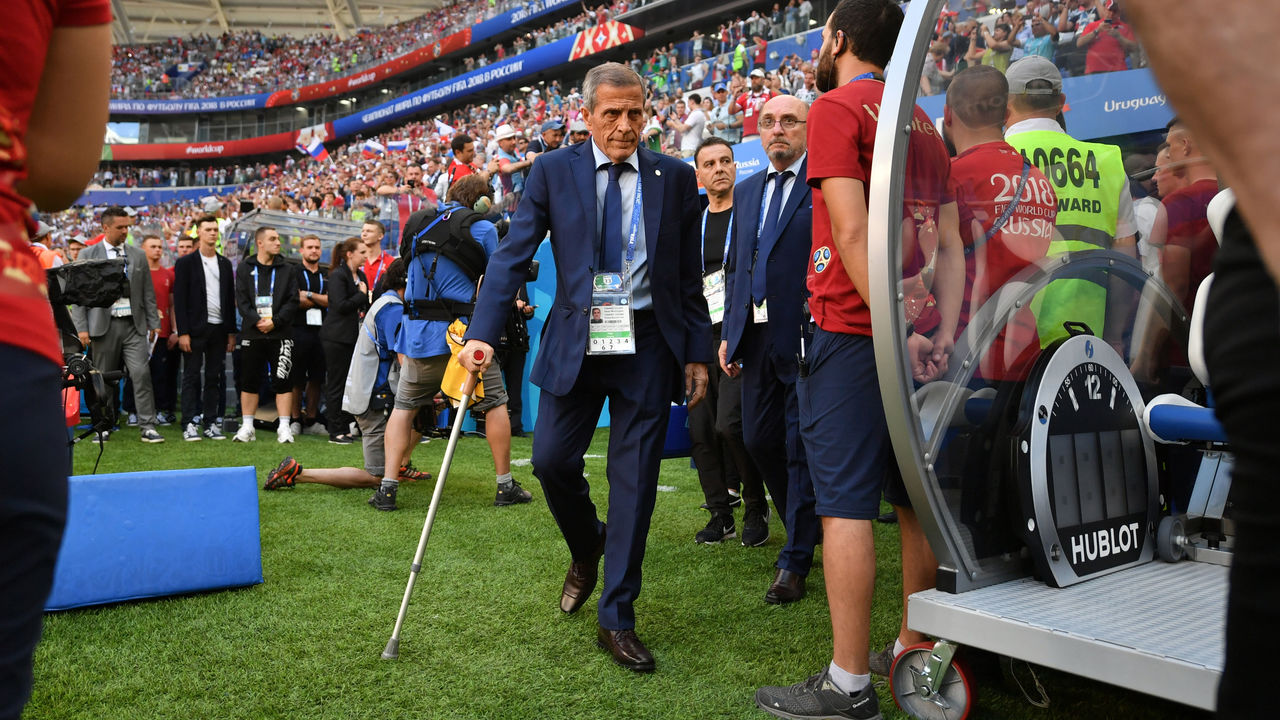El Maestro: How Tabarez restored Uruguay as a football powerhouse
Diego Godin was already leading Uruguay's team talk by the time Oscar Washington Tabarez emerged from the bowels of the stadium last Saturday. The coach was late, but he didn't have to give a rousing speech. Tabarez had already taught his players how to behave in every aspect of life, and Godin, one of the manager's oldest disciples, understood the gravity of the moment.
"He said, 'We're playing for the fathers, for the mothers, for the neighbours, for the brothers, so please, guys, give it your best," Tabarez recalled. "And then it panned out exactly like that on the pitch. They didn't hold back at all."
Uruguay eventually held off Portugal to win 2-1 and advance to the quarter-finals of the 2018 World Cup, another fantastic result to add to Tabarez's long and established reign in charge of La Celeste. He has coached the national team for the past 12 years, but not only on the touchline. Tabarez has supervised the reconstruction of the country's ethos, encouraging more disciplined play and a greater commitment to the collective.
When he agreed to coach Uruguay for a second time in 2006, he wanted to achieve more than results like last week's versus Portugal. He took on a project that would change the way Uruguayans think about football.

He realised their reputation was sullied by dirty tactics and a litany of high-profile red-card offences. Jose Batista's violent challenge on Gordon Strachan at the 1986 World Cup came to define the country's win-at-all-costs mentality. La garra charrua, which long described Uruguay's fighting spirit, became lost in translation. Once a call for bravery in the face of impossible odds, the saying began to promote something more grotesque. It led to an unruly style of play that favoured brawn and muscle over skill and talent.
It was considered the only solution for a national team that struggled to recapture the glory of the early 1900s, when Uruguay won back-to-back gold medals and the very first World Cup. Instead, it bred more failure.
Tabarez corrected this misconceived notion, putting in years of hard work to produce a system that taught players the right way to act. He discovered quickly that things didn't always have to be the way they were, that Uruguay could play a higher quality game.
"It was important to understand that history is a huge asset but we have to understand it well," Tabarez told The Blizzard in 2013. "It's true that we've made mistakes in the past, when a result didn't arrive and, out of impotence, we reacted. That notoriety, which I believe was also exaggerated, was only good for the opposition, because they tried to make us react."
The first changes took place at the national team's training centre on the outskirts of Montevideo. Tabarez, a former elementary school teacher, began to educate Uruguay's up-and-comers about the virtues of fair play. He expanded their minds, adding a library so the youngsters could study history, and encouraged all players, from the Under-15s and up, to put their phones away during meals and interact with each other. He also asked his pupils to stay in Uruguay for as long as possible, to take the time to grow and resist the quickest route to Europe.

It amounts to what he calls an "atmosphere of respect." That is one of his central values in life. It's bred a sense of togetherness and humility among the people at the complex, with youth players sharing the same facilities as the senior side. No one is bigger than the project. Mistakes can be made, matches can be lost, but always with dignity.
Tabarez continues to preach this sacred truth to this day. His players begin every press conference by greeting the media, showing the kind of common decency that's all too rare in the present day. He's also generous and patient with his own responses, giving reporters thoughtful answers that extend beyond the match in question.
He doesn't see any of his players as exceptional athletes, but as people with common obligations.
"When I want to see stars," Tabarez said, "I look at the sky."
His methods brought success. Uruguay finished third at the 2010 World Cup, beat Paraguay in the final of the 2011 Copa America, and reached the semi-finals of the 2013 Confederations Cup. Yet another quarter-final appearance awaits Friday against France.
There were setbacks in the correctional phase - Luis Suarez's famous red card against Ghana was an aberration from an otherwise improving disciplinary record - but also clear signs of growth. Uruguay won the fair play award at the Copa America and received just one caution through the first four matches in Russia.
Tabarez's biggest test was Suarez. He embodied garra in the worst possible way. His biting habits, diving, and overall nastiness on the pitch threatened to maim Uruguay's image. He committed 13 fouls in one match, and of course there was the lengthy suspension for gnawing at Giorgio Chiellini's shoulder at the 2014 World Cup.

Tabarez, however, continued to support his player privately and publicly. Tabarez defended him even when he was booed at Nacional for losing possession one too many times. More than a gruelling taskmaster, Tabarez served as a father figure to the 31-year-old and the rest of the national team. He gave most of them their international debuts, and saw each turn into smart, responsible men.
Suarez has settled down in the years since and become a more unselfish player. It's the clearest indication yet that Tabarez's approach has worked. Suarez admitted in his autobiography that Tabarez's unwavering support compelled him to finally find "the right people" to help his psychological state.
He now expresses garra in a more positive way, running tirelessly for his teammates while playing second fiddle to Edinson Cavani. The fact that two traditional centre-forwards have found a way to co-exist on the pitch is a testament to the self-sacrifice Tabarez instilled in his team. Suarez just learned the hardest way.
It's apparent he and Cavani have so much respect for Tabarez, who at 71 years old is the oldest manager at the World Cup. They still see him as El Maestro despite the neurological disorder that's limited his walking ability in Russia. He is no less a leader on their minds, no less The Teacher. They shake his hands at the end of matches and follow all of his instructions. The sight of the two defending from the front against Portugal is evidence of that shared dedication.

But that collective effort would fall short if not for the quality of Tabarez's players. Godin and Jose Maria Gimenez form a strong defensive pairing that allows Uruguay to absorb attack after attack and break on the counter. Lucas Torreira wins possession in the middle of the park, while Suarez and Cavani need no invitation to score. The speed of movement and thought, combined with that total commitment, is modern-day garra. It's what Tabarez has striven toward since taking the job in 2006.
"An Argentinian journalist who was talking to me once said, 'When I was at (Uruguayan side) Penarol, the players would come back to the dressing room with a victory and really tired.' That's what's most important," Tabarez added. "Giving it all, being really tired, and with victory as a prize. As a coach, I see absolute value in that."
(Photos courtesy: Getty Images)